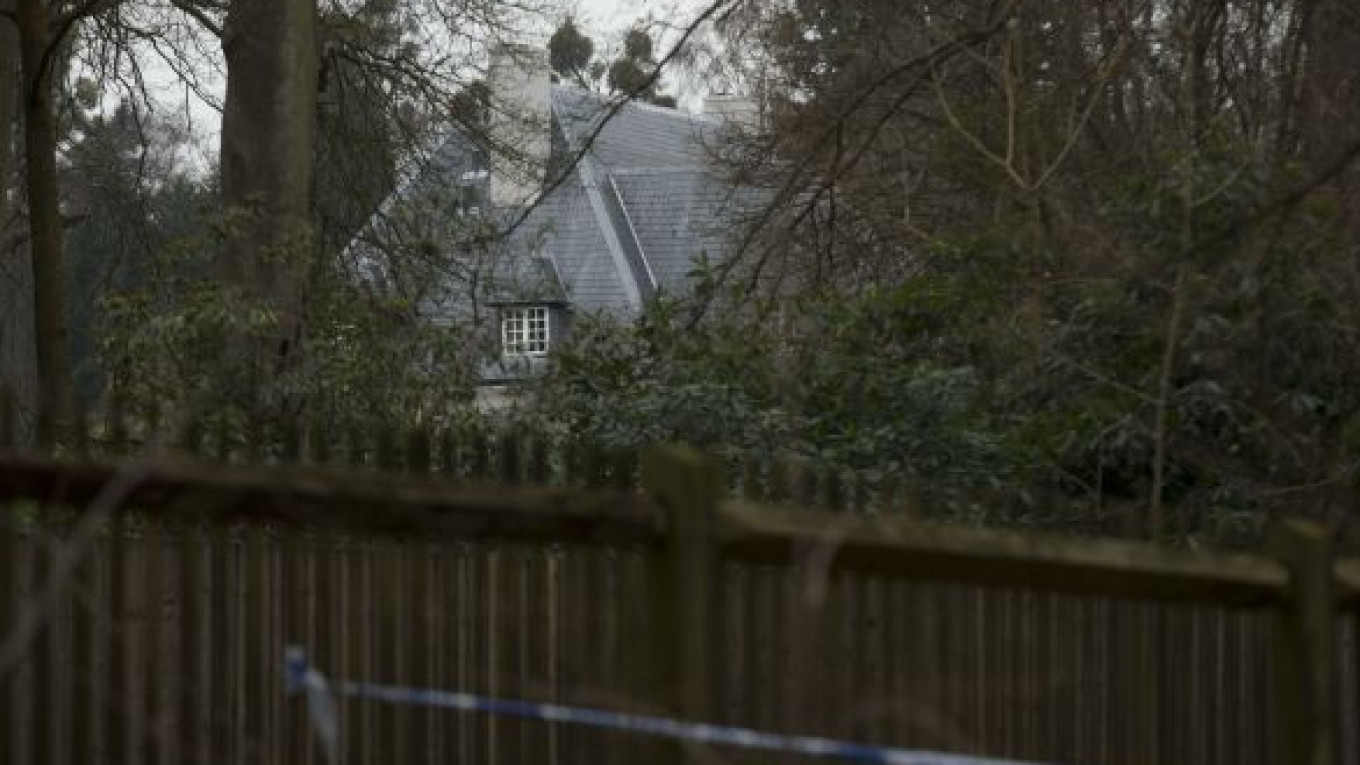LONDON — Former tycoon Boris Berezovsky, whose body was found in the locked bathroom of his luxury mansion near London over the weekend, died by hanging, British police said Monday.
An autopsy showed no signs of a violent struggle, but further tests will be carried out, including toxicology and histology examinations, police said.
Once known as the gray cardinal of Kremlin politics, the former billionaire powerbroker helped Vladimir Putin come to power before fleeing in 2000 for Britain, where he became one of the fiercest critics of Russia's new elite.
The body of 67-year-old Berezovsky was found on Saturday in his sprawling property in Ascot, an affluent town a few kilometers from Queen Elizabeth's Windsor Castle.
His associates had hinted that Berezovsky might have killed himself because he had been severely depressed after losing a bruising $6 billion court battle last year against fellow tycoon Roman Abramovich.
"The results of the postmortem examination, carried out by a Home Office pathologist, have found the cause of death is consistent with hanging," police said in a statement. "The pathologist has found nothing to indicate a violent struggle."
Results of further tests are likely to take several more weeks to announce, police said.
The apparent suicide of one of the most powerful of the so-called oligarchs marks the end of an era for many Russians, an epoch in which he symbolized the cutthroat world of Russia's new capitalism that followed decades of communist rule.
From his self-imposed exile in London, the chosen home of many business figures and dissidents who have fallen afoul of the Kremlin, he vowed to overthrow the Russian leader, whom he cast as a corrupt "bandit" backed by ex-KGB spies.
Always surrounded by controversy and conspiracy theories, Berezovsky survived several assassination attempts throughout his eventful life, including a bombing that decapitated his driver.
His friends and associates have said he had been feeling devastated after losing a legal battle against former partner Abramovich over shares in Russia's fourth-biggest oil company last year.
In Russia, Kremlin allies and pro-government media pressed ahead with portrayals of Berezovsky as a beaten man who had begged Putin's forgiveness in a last-ditch effort to return to his homeland. Berezovsky's friends in London have denied this.
Related articles:
A Message from The Moscow Times:
Dear readers,
We are facing unprecedented challenges. Russia's Prosecutor General's Office has designated The Moscow Times as an "undesirable" organization, criminalizing our work and putting our staff at risk of prosecution. This follows our earlier unjust labeling as a "foreign agent."
These actions are direct attempts to silence independent journalism in Russia. The authorities claim our work "discredits the decisions of the Russian leadership." We see things differently: we strive to provide accurate, unbiased reporting on Russia.
We, the journalists of The Moscow Times, refuse to be silenced. But to continue our work, we need your help.
Your support, no matter how small, makes a world of difference. If you can, please support us monthly starting from just $2. It's quick to set up, and every contribution makes a significant impact.
By supporting The Moscow Times, you're defending open, independent journalism in the face of repression. Thank you for standing with us.
Remind me later.


